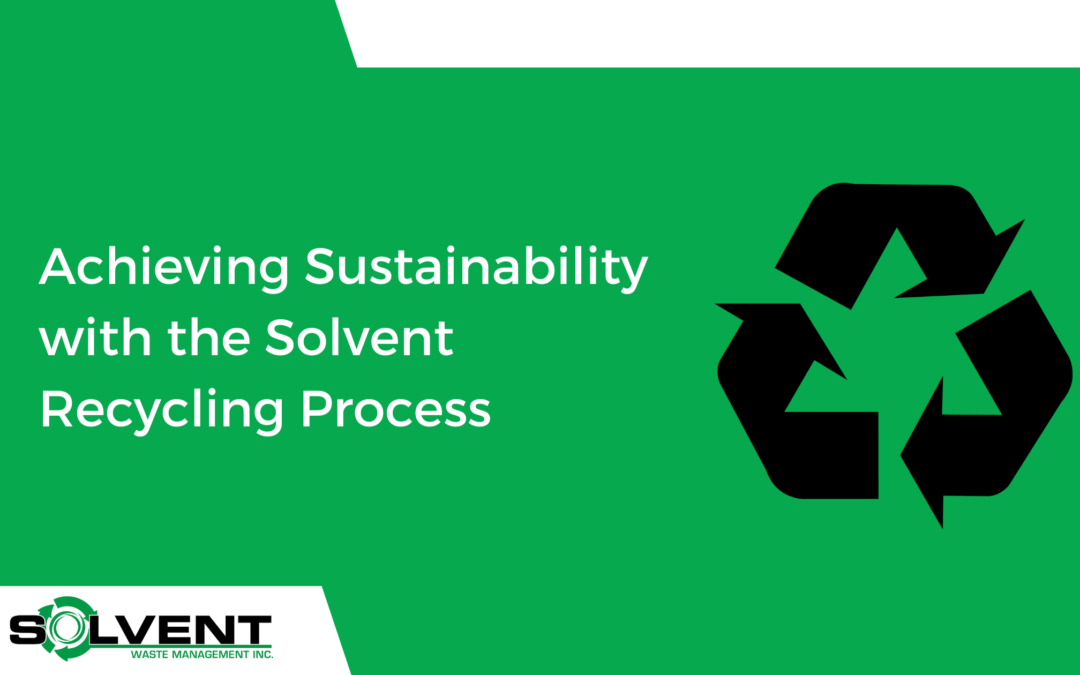The increasing need for eco-friendly solutions in various industries has led to the widespread adoption of the solvent recycling process. This innovative green technology not only helps businesses save money but also contributes to sustainable business practices and a cleaner environment. In this blog post, we will explore how solvent recycling is helping industries reduce their environmental impact and promote resource conservation.
Understanding the Solvent Recycling Process
The solvent recycling process involves the use of specialized equipment to separate contaminants from used solvents, enabling their reuse in various applications. This waste minimization technique is an excellent example of a circular economy, where resources are continuously reused, reducing the need for new materials and minimizing waste generation.
Key Environmental Benefits of Solvent Recycling
By implementing solvent recycling, industries can achieve significant environmental benefits, such as pollution reduction, carbon footprint reduction, and resource conservation. Reclaimed solvents reduce the demand for virgin materials and help minimize the harmful effects of industrial processes on the environment.
How Different Industries Are Adopting Solvent Recycling Techniques
Various industries, such as automotive, pharmaceutical, and chemical manufacturing, have embraced solvent recycling techniques to achieve sustainability and regulatory compliance. By sharing success stories and best practices, we can inspire more businesses to adopt these eco-friendly solutions and make a positive impact on the environment.
The Economic Advantages of Solvent Recycling
Apart from the environmental benefits, solvent recycling also offers considerable cost savings for businesses. By reusing reclaimed solvents, companies can reduce their expenses on purchasing new solvents and disposing of waste. Moreover, the recycling process can help businesses comply with environmental regulations, avoiding potential fines and penalties.
Tips for Implementing Solvent Recycling in Your Business
If you’re considering adopting solvent recycling in your business, following best practices and choosing the right equipment is essential. Here are some tips to help you get started on the path to sustainability and cleaner production:
- Assess your company’s solvent usage and waste generation
- Research the appropriate solvent recycling equipment for your needs
- Consult with experts to ensure a successful implementation
- Train your employees on proper handling and maintenance of the equipment
- Continuously monitor and optimize the recycling process for maximum efficiency
Innovations and Emerging Trends in Solvent Recycling
As the demand for sustainable solutions grows, new innovations and trends in solvent recycling are emerging. From advanced filtration technologies to AI-driven optimization tools, staying informed about the latest developments in solvent recycling can help your business stay ahead of the curve and further reduce its environmental impact.
The Role of Solvent Recycling in Corporate Social Responsibility (CSR)
Integrating solvent recycling into your business operations not only benefits the environment but also demonstrates your commitment to Corporate Social Responsibility (CSR). By showcasing your company’s dedication to sustainability, you can enhance your brand reputation and attract eco-conscious customers, partners, and investors.
Evaluating the Effectiveness of Your Solvent Recycling Process
To ensure the long-term success of your solvent recycling process, it’s essential to regularly evaluate its effectiveness. This includes measuring key performance indicators (KPIs), such as waste reduction, cost savings, and environmental impact. By continuously monitoring and improving your process, you can maximize the benefits of solvent recycling and ensure your business remains competitive and sustainable.
Overcoming Challenges and Common Misconceptions about Solvent Recycling
While the benefits of solvent recycling are undeniable, some businesses may still have concerns or misconceptions about its implementation. Addressing these concerns and providing accurate information is vital for promoting the widespread adoption of this eco-friendly solution. In this section, we’ll debunk common myths and discuss strategies for overcoming challenges associated with solvent recycling.
The Future of Solvent Recycling and Its Impact on Global Sustainability
As the global demand for sustainable solutions continues to grow, the importance of solvent recycling in reducing environmental impact and promoting resource conservation cannot be overstated. By exploring the future of solvent recycling, we can better understand its potential to drive global sustainability efforts and encourage more industries to embrace eco-friendly practices.
Conclusion
Solvent recycling is a game-changer for industries seeking to reduce their environmental impact and adopt sustainable business practices. By understanding the benefits and applications of this eco-friendly solution, businesses can contribute to a greener future while also reaping the financial rewards. Are you ready to join the growing number of companies that are achieving sustainability with the solvent recycling process? The time to act is now!

